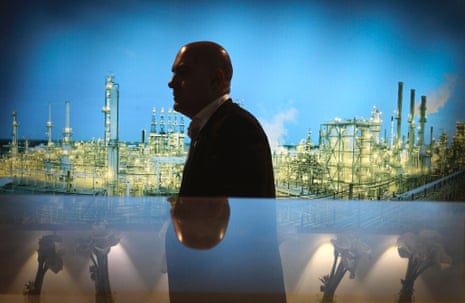At a buzzing finance ministry branch on central Tehran’s Navab Street, 55-year-old educator Parvin pulls out her checkbook to pay the 2 million tomans (around $660) she owes the government in property tax. When she frets over the correct date of the payment, the clerk cracks a joke about her paltry behavior. “Does your mom cook at home?” he asks Parvin’s young son. The little boy giggles nervously and nods his head. “Well, I bet she burns a lot of the food since she’s so worried about getting her taxes just right.”
As plunging oil revenues pressure the Iranian government to come up with new revenue streams, reforming the country’s broken tax system is high on President Hassan Rouhani’s list of priorities. But cracking down on the plethora of exemptions and grey economic entities that allow an estimated 43% of the country’s GDP to go untaxed requires a transformation of bureaucratic culture. On a structural level, reining in the religious, semi-governmental and military organizations accustomed to tax breaks portends a political challenge akin to “pulling fresh kill out of a lion’s mouth,” a Tehran-based political analyst said.
To date, the government’s tax collection efforts have been more effective than previous administrations. Last year, the state allocated a record 95% of projected tax revenues. But the global drop in oil prices and the continuing grind of international sanctions have tempered their effect on state coffers. In the next fiscal year, which begins in March, the government plans to fund over half its budget through tax and tariff revenues, a 22.5% increase from last year.
To achieve these numbers, Rouhani has turned his attention to the opaque conglomerates that control large swathes of the country’s economy but are legally exempt from taxation. These include companies controlled by the Revolutionary Guards (IRGC), Astan Quds Razavi, an autonomous charitable foundation in Mashhad, and Setad, a powerful organization controlled by Ayatollah Khamenei.
Although Astan Quds Razavi carries out a particularly broad set of economic activities, it was Ayatollah Khomeini himself who ordered that it be exempt from paying taxes. Tasked with overseeing both the burial place of the eighth Shi’i Imam Reza, the massive endowment is said to control nearly half of Mashhad’s residential land and much of the agricultural land on the city’s outskirts.
“These institutions are not accountable to the government, and only the Supreme Leader can make them pay taxes,” the Tehran-based analyst said. “Since the decrease in oil exports, the Supreme Leader has actually pressured these organizations to pay, but it seems that their mafia-like network is so powerful that even the Supreme Leader’s words don’t carry the necessary weight.”
Last year, the government collected most of the its tax revenue from individuals, whose contribution to state coffers increased 75% since the 2012-13 fiscal year. But many professionals including military doctors, farmers and state employees are entitled to exemptions, as are individuals earning under 840,000 tomans ($280) per month. Exemptions also extend to businesses operating in free trade zones and economically deprived areas, industrial and mining activities as well as tourism.
Those obligated to pay the full amount generally do so grudgingly. “Taxes are pretty much make-it-up-as-you-go, and very much a matter of luck and chance,” a pharmacist on Shari’ati Street told Tehran Bureau. Based on a variety of disparate factors including insurance agreements and professional reputation, the ever-changing rules mean that high earners base their tax payments on the same income they had when they first began practicing medicine, he added.
An ophthalmologist in Sasan Hospital on central Tehran’s Keshavarz Boulevard pointed out that, as in other fields, many medical professionals find ways to avoid paying taxes altogether. “One of my colleagues is a prominent oncologist in Tehran. She charges 400,000 tomans ($133) for each chemotherapy treatment. Her office doesn’t have a card reader, so she accepts only cash. Such a business model makes it easier to avoid paying so much.”
“Taxes only work in countries where there is some kind of accountability,” says Mohsen, 40, a barbershop owner from east Tehran. “There is so much corruption here. The government takes the money I spend morning to evening toiling for and sends it to Bashar al-Assad for his war on the Syrian people. If it doesn’t go to al-Assad, it will just disappear in the next historic case of embezzlement.”

Comments (…)
Sign in or create your Guardian account to join the discussion